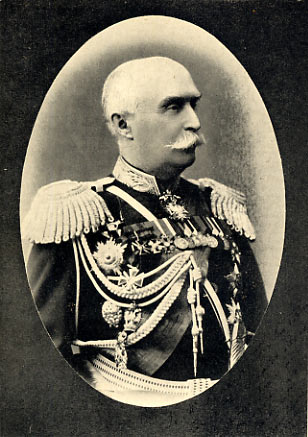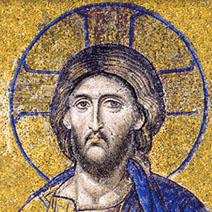Yes, people in Austin are mad about dogs. I don't know of another city that loves its canines like we do. Here's an article on our dog culture.

- A Scotman in Russia
- The First Steps
- Russian Military Flying Schools
- The Imperial All Russia Aero Club
- General Baron Kulbars & Aviation
- The Imperial Russian Technical Society
- The Prototype of the Zeppelin
- Contruction, Aviators & Workmen
- Famous Russian Flying Men
- I.I. Sikorsky
- Foriegn Aviators in Russia
- Heir Fokker's Russian Lady Pilot
- Just Before the War
- Aerial Russia & the British Press
- Aviation & the Russian Press
- By Way of Conclusion

Chapter V - General Baron Kulbars & Aviation
General Baron Kaulbars is a member of the Supreme Military Council of RussIa, and one of the most ("brilliant of contemporary Russian soldiers. He is seventy-four years of age, though both his appearance and his energy suggest a man still in the prime of his powers. He is strikingly handsome, and on first meeting him one would take him for a recently appointed general rather than a general with many long years of service. Baron Kaulbars is distinguished by his charm of manner, and he has the Russian characteristic of extending a common courtesy to men of all classes. He indeed commands universal respect and admiration. He is a type of the working officer, brilliant in the field and tireless in the constant preparation for war that fills a soldier's time during peace. He has reached his high position, not by mere luck, but by genuine hard work. Baron Kaulbars was a general as long ago as 1880 and his military biography would fill a large volume. I have had the honour to serve under his command, and the details of his career are quite familiar to me, although I am bound to add that they are equally familiar almost to every Russian and particularly to men interested in aviation. Baron Kaulbars' father was also a general and served in the Russian army for more than fifty years. His son has served for fifty-four years. He has seen seven wars and taken part in eighty-two battles, and he has received practically every decoration that a general can receive, among them the Star of St. Alexander Nevsky, set with diamonds, and the Grand Cordon of the Legion of Honour.

He began his service in the Life Guards in Petrograd and was subsequently at the Staff College with Skobeleff. He took part in the Khiva Expedition and afterwards made an exploration tour in the then unknown parts of Central Asia. His exploration of the Thian-Shan mountains led to a most important addition of general geographical knowledge. Baron Kaulbars discovered the old bed of the River Amu-Daria and he worked out a plan for diverting the river back to its original - channel. He found out the reasons why the Amu-Daria had changed its course and he convinced Russian geographers that if it could be again turned into the Caspian a highly important waterway could be constructed by which goods could reach Afghanistan from Western Europe.
Baron Kaulbars was one of the heroes of the Russo-Turkish War of 1877-78, and he acted as one of the Russian Plenipotentiaries at the famous Berlin Congress. He was afterwards appointed the first Minister of War to the newly created state of Bulgaria, and afterwards was Regent there for some time. General Kaulbars has spent the greater part of his military service with the cavalry and the General Staff. He first commanded a cavalry division, afterwards became chief of a cavalry corps, and later of an army corps. During the Boxer Rising Gcneral Kaulbars was at the head of the Russian army in Korea. He crossed this difficult mountainous country with Cossacks and artillery with the temperature at 200 below zero, and this experience proves the extraordinary power of the Cossacks to withstand the severest physical conditions.
General Kaulbars commanded the Third and Second Manchurian armies during the Russo-Japanese War, and the outbreak of the Revolution found him Commander-in-Chief of the Odessa Military District. It was a trying experience, particularly for a man of conspicuously kindly heart, but Baron Kaulbars succeeded in obtaining respect eyen from the enemies of the Government. Baron Kaulbars was in Switzerland when the present war broke out, and with his wife and daughter, who is a lady-in-waiting to the Empress, he was arrested by the Germans on his way to Petrograd and treated with considerable indignity. They were afterwards exchanged for a number of German officers who had been detained in Russia. Since then the Baron has been badly injured in the course of an aeroplane reconnaissance - a sufficiently hazardous adventure for a man of his age - and he has lost a son, a captain in the Life Guards, who fell on the field of battle as a true son of Russia. The Baron was in London during March of last year, on his way to France, and had the honour to be granted a special audience with the King and Queen.
I recently had the honour again to meet this great soldier in London, and I spent several happy days with him. His connection with aviation began with his founding of the Imperial All Russia Aero Club, and his first flight experiences were with balloons and kites. At the time when the Grand Duke Alexander Michailovitch founded the Aviation Section of the committee for enlarging the Russian fleet by voluntary contributions, General Kaulbars was appointcd its Vice-President, an office which he still holds. He was almost the first Russian soldier to realise the potential military value of the aeroplane, and it was he who urged that the most promising Russian pilots should be sent to France to study the construction of machines and the development of the art of flying. He himself attended the early French aviation meetings, and he also paid considerable attention to what was being done in Germany and Austria. It was not necessary for him, alas, to make investigations in England, for in those early days England was utterly uninterested in the new science, and the few Englishmen who had been attracted by the conquest of the air were working in France.
The General organised the first Petrograd-Moscow Aeroplane Race in 1910. He twice motored to Petrograd and Moscow and back - a total distance of over 1600 miles - and he personally prepared the maps of the course, on which were marked the marshes, forests, railways, towns, and villages, as well as all suitable landing-places.
He afterwards persuaded the War Office to construct the famous Gatchino Aerodrome, which is still regarded as one of the best-equipped aerodromes in the world. It has magnificent hangars, an officers' club, barracks, and modern workshops where complete aeroplanes can be constructed. It also possesses the most recent apparatus for facilitating night-flying.
The General's connection with the Grand Duke Alexander Michailovitch's committee [brought him into close touch with the developments of Naval Aviation in the Baltic and Black seas, and he did excellent service in the establishment of Naval Flying Schools and the building of hydroaeroplanes. He was the founder of the Odessa Aero Club, which, thanks to him, has become an institution of the first importance and the centre of aviation in the south of the Empire. The Odessa Club possesses a fine aerodrome and every facility for the study of aviation problems. As I have said, he lent his energies to the appeals for voluntary contributions for the founding of a Russian Aerial Fleet. These appeals led to the collection of many millions of roubles which much enabled Russia to be so well prepared for war in the air when Germany launched her bolt against Europe. Thanks to his suggestion a great deal of money was saved through economics in the building of warships, and these savings were spent in the construction of aeroplanes instead of airships, for Baron Kaulbars has always believed that the aeroplane was a much more valuable military weapon than the dirigible. In this respect his foresight and understanding have been quite remarkable.
As the art of aviation progressed, the General continued to keep in touch with all that was being done outside Russia's borders, and the journeys of the various technical committees were largely undertaken at his suggestion. The information they collected was placed at the disposal of native engineers, inventors, and manufacturers. It may indeed be safely said that there is not one single well-known aviation constructor in Russia who has not, at one time or the other, received timely and invaluable assistance from General Baron Kaulbars.
The work of Sikorsky, Kennedy, and Slessareff, in designing and constructing giant planes, attracted the attention of General Kaulbars at the beginning, and he watched their efforts with the closest interest. It was principally owing to his influence that the Baltic Works were persuaded to finance Sikorsky and to place their unrivalled technical facilities at his disposal. General Kaulbars was particularly pleased by the. close co-operation which existed between the three men who brought the giant aeroplane into existence. This co-operation, by the way, is the more remarkable when it is remembered that each has his own very definite ideas. Sikorsky and Kennedy are both practical aeroplane constructors, and Professor Slessareff made the scientific investigations essential to them at various stages of the actual building. Readers of this book should note how successful the co-operation has been and that it has enabled Mr. Kennedy within the last few months to construct a giant aeroplane for Great Britain.
General Kaulbars attended all the early trials of the giants and made many flights in them himself. This actual experience enabled him to speak with first-hand authority and to convince the War Office of their supreme military importance. The consequence has been that Russia has abandoned the dirigible altogether and that she is now devoting all her energies to the construction of a great aerial fleet of giant planes.
General Brussiloff's recent advance in Galicia which has filled the world with admiring astonishment, has been greatly assisted by the magnificent scouting work performed by the Sikorsky aeroplanes attached to his army.
British sportsmen will be interested to know that General Kaulbars, in spite of his age, is the only general who has made hundreds of flights in seventeen different types of machines and has over fifty times looped the loop. Last year, although while making an aerial reconnaissance over the German positions he had a bad accident while landing and broke three ribs, his enthusiasm was not the least affected by this incident, and the General has since made other flights in Russia, in England, and in France. He is, in sober truth, the " Grand Old Man of the Air."



